About the Book Club
UO’s Lab Lit Book Club is modeled after a monthly science book club at the Royal Institution in London. We will discuss literary fiction, science communication, and the narrative challenge of pairing accurate science with a compelling story. We aim to attract a diverse group. So please feel free to invite your friends and family members, if they are book lovers, as well as colleagues in other departments.
Questions? Please contact Rachel Rodman (rrodman@uoregon.edu)
Current Reading
Fall 2024
 The Sky’s Dark Labyrinth
The Sky’s Dark Labyrinth
by Stuart Clark
Thursday, Dec. 5th, 4:00 pm
In person | Location Price Science Commons B040
The Sky’s Dark Labyrinth is a work of historical fiction (1600-1633) about Kepler and Galileo. The novel charts the astronomers’ discoveries and publications, their struggles with religion/politics, and their relationships with their families. Tycho Brahe, Emperor Rudolf II, and Pope Urban VIII are also significant characters.
We will be joined at our December meeting by special guest Jerry Oltion, who builds his own telescopes and writes for the magazine Sky and Telescope.
The Sky’s Dark Labyrinth is available from the Eugene Public Library’s Hoopla service.
We hope you can join us.
Past Readings
Summer 2024
 Charmed Particles
Charmed Particles
by Chrissy Kolaya
Thursday, July 25, 4:00 pm
Zoom only
Plans to construct a particle accelerator in a Midwestern town lead to conflict between particle physicists and a rural community. Charmed Particles is inspired by real events: in the 1980s, the Department of Energy evaluated multiple sites for a proposed Superconducting Super Collider (SSC).
The author, Chrissy Kolaya, will be joining our meeting, and we will have the opportunity to learn more about her creative process. We’ll also discuss science funding, the composition of matter, and the importance of science communication.
Spring 2024
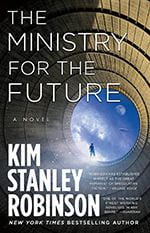 The Ministry for the Future
The Ministry for the Future
by Kim Stanley Robinson
Thursday, June 6th, 4:00 pm
In person | PSC Visualization Lab
At the Lab Lit Book Club, we read works of fiction that feature scientists as major characters. This term, we’ll discuss Kim Stanley Robinson’s The Ministry for the Future.
Robinson’s novel begins in 2025. Over the next several decades, a diverse cast of characters: aid workers, employees of an intergovernmental agency, refugees, economists, and so on, grapple with climate change.
“Both an optimistic and a difficult work…readers will finish Ministry with a clearer view of the big picture and a much better understanding of the many different pieces humanity must puzzle together to meet the challenge of climate change.”
–Yale Climate Connections
Winter 2024
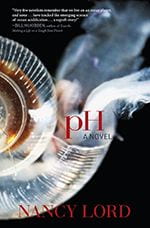 pH: A Novel
pH: A Novel
by Nancy Lord
Thursday, March 7, 2024, 4:00 pm
In person | Location TBD
Winter term, we’ll discuss pH: A Novel, by Nancy Lord. At a university in Alaska, a marine biologist clashes with a collaborator. A Ph.D. student debates her future: a career in government or a career in academia? After taking part in an oceanographic cruise, an artist creates a fire-based art project (conceived as a commentary on climate change) and dresses up like a marine snail.
At our March 7th meeting, we’ll discuss these and other characters; we’ll also tackle ocean acidification, science-inspired art, and relationships between academia and industry.
Everyone is welcome; just read the book and come prepared to discuss it.
Fall 2023
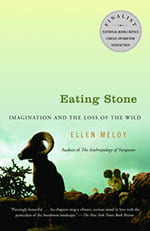 Eating Stone: Imagination and the Loss of the Wild
Eating Stone: Imagination and the Loss of the Wild
Thursday, October 26 at 4 pm
In person | LISB 217
Fall term, we will discuss Eating Stone: Imagination and the Loss of the Wild. In it, the nature writer Ellen Meloy chronicles a year spent with a population of bighorn sheep in the American Southwest.
“a quest to commune with desert bighorn sheep in the many habitats that support them…Meloy pays exquisitely close attention to the contours of the desert and the behaviors of the animals that inhabit it, marveling at the myriad ways those creatures have found to survive.”
–Kirkus Reviews
“a surprising levity punctuates the book…[balancing Meloy’s] darker observations about the crushing footprint of humanity on the wild”
–Publishers Weekly
Summer 2023
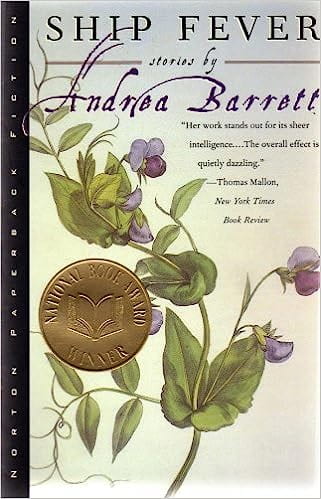 Ship Fever: Stories
Ship Fever: Stories
Thursday, July 27 at 4 pm
In person | Price Science Commons B042
Summer term, the Lab Lit Book Club will discuss Andrea Barrett’s Ship Fever: Stories.
Barrett’s collection spans several centuries. One story is about Linnaeus. Another is about a Canadian doctor grappling with an epidemic during the Irish Potato Famine. Another is about a biochemist in the 20th century. In 1996, Barrett’s collection won the National Book Award for Fiction.
“Marvelous stories…thoughtfully meditative…rich and suggestive…a brilliant first collection”
–Kirkus Reviews
“seductively stylish…Barrett uses science as a prism to illuminate, in often unsettling ways, the effects of ambition, intuition and chance on private and professional lives”
–Publisher’s Weekly
Winter 2023
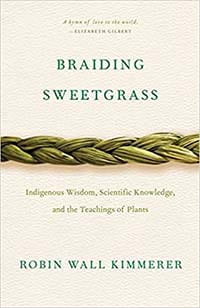 Braiding Sweetgrass: Indigenous Wisdom, Scientific Knowledge, and the Teachings of Plants
Braiding Sweetgrass: Indigenous Wisdom, Scientific Knowledge, and the Teachings of Plants
Thursday, Feb. 23, at 4 pm
In person | Location TBA
OR Via Zoom | https://uoregon.zoom.us/j/99901975535
Common Reading page
UO Libraries physical copy and ecopy of Braiding Sweetgrass
UO faculty, students, and staff can get a hard copy of their own! Contact a Common Reading student coordinator: Ari Kim, Theo Clayton, or Nicholas Thompson.
Winter Term, the Lab Lit Book Club discussed UO’s Common Reading, Braiding Sweetgrass by Robin Wall Kimmerer. Like a braid, this book combines multiple strands: plant biology, traditional stories and indigenous ways of knowing, and Kimmerer’s own biography.
“remarkable, wise and potentially paradigm-shifting” – The Guardian
Fall 2022
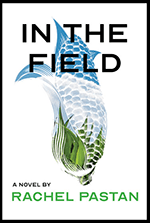 In the Field
In the Field
Thursday, Nov. 3, at 4 pm
In person | Price Science Commons B042
OR Via Zoom | https://uoregon.zoom.us/j/99901975535
In the Field, by Rachel Pastan, is the story of a fictional maize geneticist, Kate Croft, who studies at Cornell, discovers transposons, and wins the Nobel Prize. Croft’s story parallels that of a real maize geneticist, Barbara McClintock, who also studied at Cornell, discovered transposons, and won the Nobel Prize. (For comparison, you can find an excellent biography of McClintock here.)
“Engaging and heartfelt…Pastan’s ability to display the distinctly human side of scientific discovery—its many pitfalls, thrills, and missteps—keeps the novel’s heart alive.”
–Kirkus Reviews
At our November meeting, we discussed maize genetics, barriers to women’s participation in science, and the art of shaping a fictional character using elements from a real biography.
Summer 2022
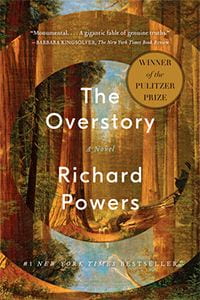 The Overstory
The Overstory
Thursday, August 18, at 4 pm
In person | Price Science Commons B042
This summer, we discussed The Overstory by Richard Powers. This Pulitzer Prize-winning novel is about trees and the scientists who study them.
“A tree’s-eye view on a planet can also be plenty unnerving, in life and in art…Using the tools of story, [Powers] pulls readers heart-first into a perspective so much longer-lived and more subtly developed than the human purview that we gain glimpses of a vast, primordial sensibility, while watching our own kind get whittled down to size.”
–The NY Times
“an astonishing performance…There is something exhilarating, too, in reading a novel whose context is wider than human life. Like Moby-Dick, The Overstory leaves you with a slightly adjusted frame of reference.”
–The Guardian
Spring 2022
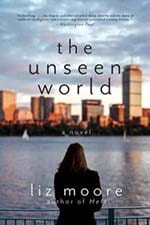 The Unseen World
The Unseen World
Thursday, May 26, at 4 pm
In person | Price Science Commons B040 (subject to change)
OR Via Zoom: https://uoregon.zoom.us/j/99901975535
This term, we discussed The Unseen World, by Liz Moore.
The Unseen World is set in the 1980s and is about early research into artificial intelligence. The protagonist, Ada, is named after Ada Lovelace (1815-1852), the first computer programmer.
After early-onset Alzheimer’s ends her father’s career, Ada works to learn more about his mysterious past and to continue his research.
“a coming-of-age story with sentient computer programs”-Vox
“an elegant and ethereal novel about identity and the dawn of artificial intelligence”- The Washington Post
Winter 2022
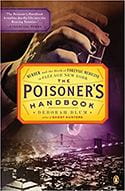 The Poisoner’s Handbook
The Poisoner’s Handbook
Thursday, February 3, at 4 pm
In person | Price Science Commons B042
OR Via Zoom: https://uoregon.zoom.us/j/99901975535
In winter we discussed a work of narrative nonfiction. The Poisoner’s Handbook by Deborah Blum documents the work of two scientists, Charles Norris and Alexander Gettler, who contributed to major advances in forensics in the 1920s.
“…a brilliant narrative. The reader spends as much time in apartments, on streetcorners, and in factories as in the lab, and Blum has skillfully tied all these disparate aspects of ‘Jazz Age’ New York into a single, flowing storyline centered around science.”-Wired
Fall 2021
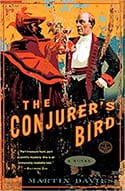 The Conjurer’s Bird
The Conjurer’s Bird
Wednesday, November 3rd, 2021
4:00 pm
In person | Price Science Commons B042
This term, we discussed The Conjurer’s Bird by Martin Davies. This novel stars Joseph Banks, an 18th-century naturalist who accompanied Captain Cook on his first voyage.
The Conjurer’s Bird is also a detective story. In the modern day, researchers work to track down the “Mysterious Bird of Ulieta,” the “rarest bird ever recorded.”
At our meeting, we discussed botanical illustration, the preservation of biological specimens, and the science (and art) of reconstructing the past.
Summer 2021
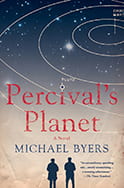 Percival’s Planet
Percival’s Planet
Wednesday, August 11th, 2021
4:00 pm
Meeting Link: https://uoregon.zoom.us/j/99901975535
In summer we read Percival’s Planet by Michael Byers. Percival’s Planet is a work of historical fiction about the astronomer Clyde Tombaugh and his discovery of Pluto in 1930. Tombaugh’s story is interwoven with a story of paleontologists on the hunt for dinosaur bones.
At our August 11th meeting, we discussed 1920s telescopes, fossil excavation, and the roles that both meticulous labor and serendipity play in scientific discovery.
Pluto the Planet, Rest in Peace. 1930 – 2006.
Spring 2021
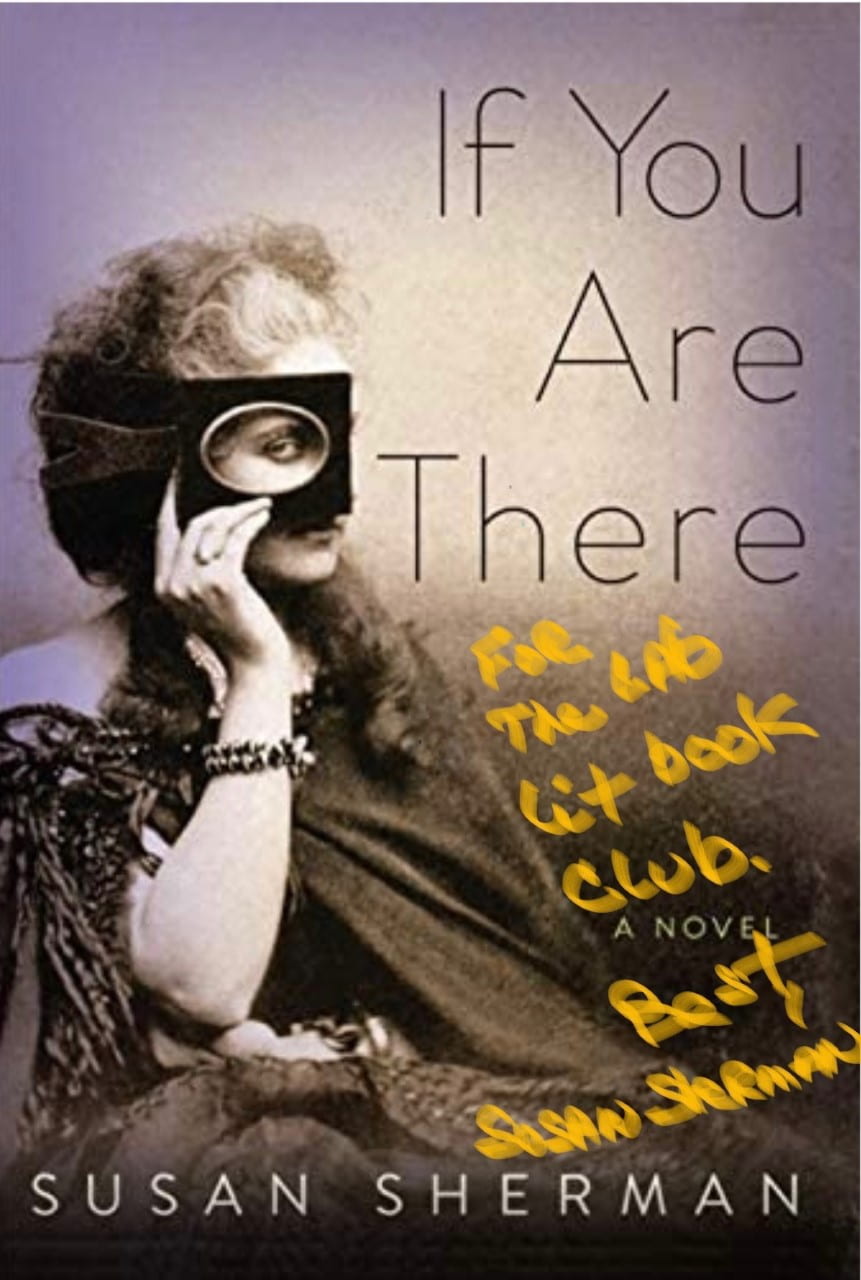 This term we discussed Susan Sherman’s If You Are There. The novel traces the lives of Marie Curie and Pierre Curie over a several-year period, mid-pointed by their 1903 Nobel Prize in Physics. The novel is also about the practice of séances (which were popular at that time) and the sophisticated tricks used by mediums to dupe their audiences.
This term we discussed Susan Sherman’s If You Are There. The novel traces the lives of Marie Curie and Pierre Curie over a several-year period, mid-pointed by their 1903 Nobel Prize in Physics. The novel is also about the practice of séances (which were popular at that time) and the sophisticated tricks used by mediums to dupe their audiences.
At our May 12th meeting, we talked about the science of radiation, the initial unwillingness of the 1903 Nobel Committee to award a prize to a woman, and the problem of pseudoscience. If You Are There‘s author, Susan Sherman, joined our conversation and generously sent an autographed book cover!
Winter 2021
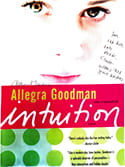 This term, the Lab Lit Book Club read Intuition by Allegra Goodman. The novel is set in a Boston laboratory aiming to develop new cancer therapies, and it centers on an investigation into research fraud.
This term, the Lab Lit Book Club read Intuition by Allegra Goodman. The novel is set in a Boston laboratory aiming to develop new cancer therapies, and it centers on an investigation into research fraud.
“Goodman does a bravura job of opening up the closed world of the research laboratory, and of humanising the ostensibly impersonal pursuit of scientific truth.” –The Guardian
At our February 24th discussion, we took on scientific misconduct, laboratory politics, and the miseries of securing laboratory funding. Intuition‘s author, Allegra Goodman, joined our conversation and even sent an autographed book cover!
Fall 2020
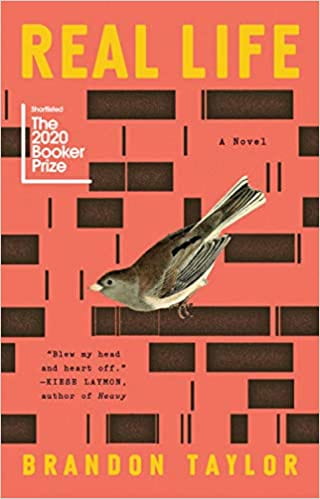 This term, we discussed Real Life by Brandon Taylor. Real Life is the story of Wallace, a graduate student in a nematode lab, who is working towards a Ph.D. in biochemistry. This critically-acclaimed novel is also about racism, homophobia, and underrepresented groups in STEM.
This term, we discussed Real Life by Brandon Taylor. Real Life is the story of Wallace, a graduate student in a nematode lab, who is working towards a Ph.D. in biochemistry. This critically-acclaimed novel is also about racism, homophobia, and underrepresented groups in STEM.
Winter 2020
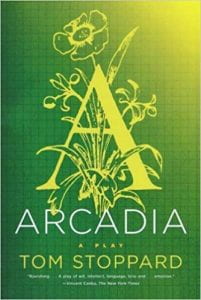 This term, we discussed a play—Tom Stoppard’s Arcadia.
This term, we discussed a play—Tom Stoppard’s Arcadia.
Arcadia is about the science (and art) of reconstructing past events, and the perils of publishing before all the data are in. It was described, at its 1993 debut, as “Stoppard’s finest play in years” and was once nominated for the honor of “the best science book ever written.”
Fall 2019
 This term, we discussed Richard Powers’ The Gold Bug Variations. Powers’ novel is in part set in the mid-1950s (post Watson and Crick’s 1953 paper), in a lab aiming to unravel the DNA code.
This term, we discussed Richard Powers’ The Gold Bug Variations. Powers’ novel is in part set in the mid-1950s (post Watson and Crick’s 1953 paper), in a lab aiming to unravel the DNA code.
The story also explores music, love, and the science of information retrieval in the 1980s, pre-internet.
As a bonus: A special guest reader from the School of Music and Dance joined us to answer questions about Bach’s Goldberg Variations and the role they play in the story.
(As a second bonus: There were codon table-themed cupcakes.)
Summer 2019
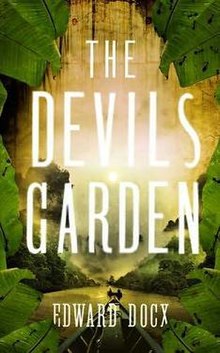
During summer, we’ll read The Devil’s Garden by Edward Docx. In this novel, a scientist studies ant behavior at a South American research station, but his work is backdropped by political upheaval.
Spring 2019
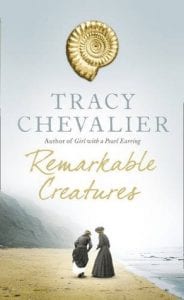 In the spring, we discussed Tracy Chevalier’s Remarkable Creatures, a novel that traces the friendship between Mary Anning (1799-1847), “the greatest fossil-hunter ever,” and her collaborator Elizabeth Philpot.
In the spring, we discussed Tracy Chevalier’s Remarkable Creatures, a novel that traces the friendship between Mary Anning (1799-1847), “the greatest fossil-hunter ever,” and her collaborator Elizabeth Philpot.
Winter 2019

Winter term, we read Harry Thompson’s account of Darwin’s voyage on the Beagle. This work of historical fiction has been published under two titles: To the Edge of the World (US) and This Thing of Darkness (UK).
Fall 2018
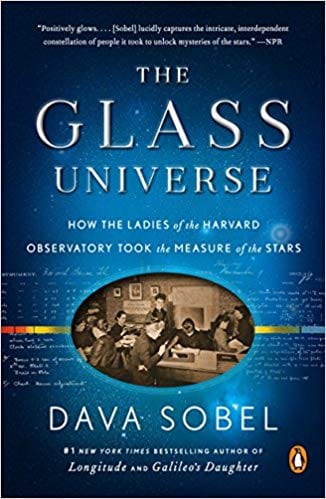 This term we discussed Dava Sobel’s The Glass Universe. The Glass Universe is a history of Harvard College Observatory, and “tells the fascinating story of a brilliant all-female team who helped to redraw the universe – and a woman’s place in it.” Everyone is welcome; just read the book and come prepared to discuss it.
This term we discussed Dava Sobel’s The Glass Universe. The Glass Universe is a history of Harvard College Observatory, and “tells the fascinating story of a brilliant all-female team who helped to redraw the universe – and a woman’s place in it.” Everyone is welcome; just read the book and come prepared to discuss it.
Summer 2018
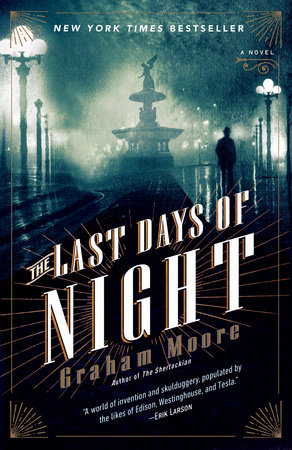 Our summer term book was The Last Days of Night by Graham Moore. The Last Days of Night is a work of historical fiction, set in the late 19th century, and it tracks a legal battle between Thomas Edison and George Westinghouse over patent No. 223, 898—a patent for a light bulb. Nikola Tesla is another major character, and even Alexander Graham Bell makes an appearance.
Our summer term book was The Last Days of Night by Graham Moore. The Last Days of Night is a work of historical fiction, set in the late 19th century, and it tracks a legal battle between Thomas Edison and George Westinghouse over patent No. 223, 898—a patent for a light bulb. Nikola Tesla is another major character, and even Alexander Graham Bell makes an appearance.
Spring 2018
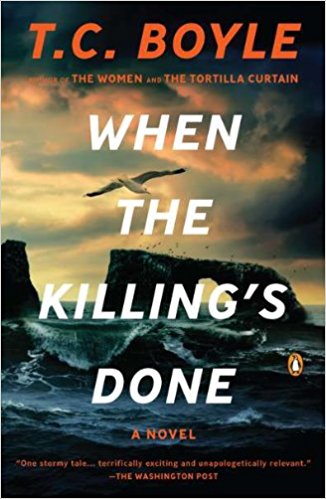
This term we discussed T. C. Boyle’s When the Killing’s Done.
When the Killing’s Done is the story of Alma Boyd Takesue, a conservation biologist with the National Park Service, who organizes an effort to remove invasive species from the Channel Islands of California. But her work is vigorously opposed by an activist group, For the Protection of Animals, which objects to the killing of animals under all circumstances.
Winter 2018
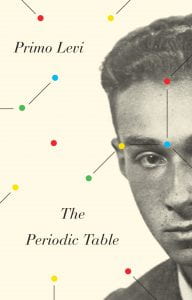 This winter we discussed The Periodic Table by Primo Levi. The Periodic Table is a memoir of an Italian chemist and Auschwitz survivor, and was once voted “the best science book ever written” by a panel at London’s Royal Institution.
This winter we discussed The Periodic Table by Primo Levi. The Periodic Table is a memoir of an Italian chemist and Auschwitz survivor, and was once voted “the best science book ever written” by a panel at London’s Royal Institution.
Fall 2017
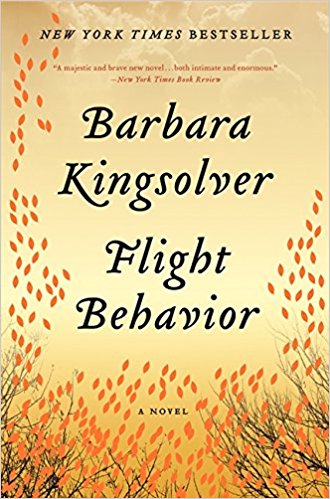
At our first meeting, we discussed Flight Behavior by Barbara Kingsolver.
“In Barbara Kingsolver’s new novel, ‘Flight Behavior,’ a central character is an entomologist tracking the effects of global climate change on monarch butterflies…There’s a love story, of course, and a coming-of-age story…But the take-away of this novel is that nature is off kilter, spinning out of control, changing before our very eyes.” – NY Times